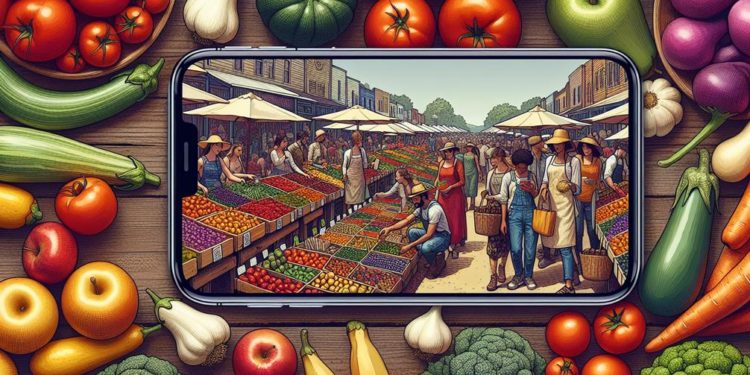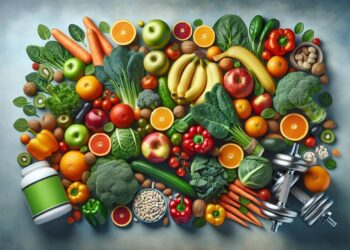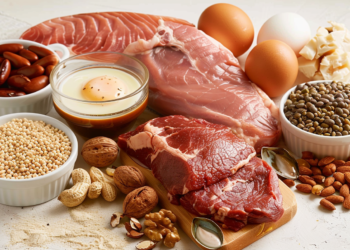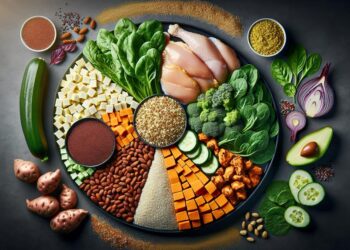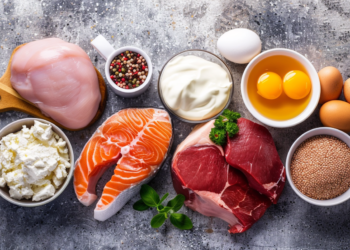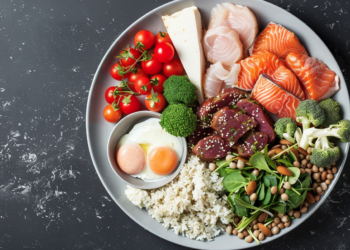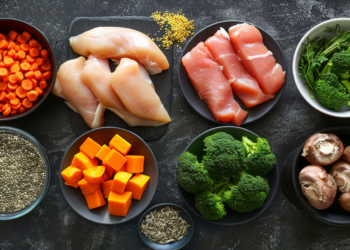Are you ready to take the first step towards a healthier, more sustainable lifestyle? Embracing a plant-powered diet can be a game-changer, not just for your own well-being, but also for the planet. But where do you begin? In this discussion, we will explore vegan diet plans designed specifically for beginners like you. From the benefits of a vegan diet to essential nutrients you need to keep in mind, we'll cover it all. So, if you're curious about how to make the transition and nourish your body with delicious plant-based meals, keep reading to discover the secrets of a thriving vegan lifestyle.
Key Takeaways
- Embracing a vegan diet can offer numerous health benefits, such as reducing the risk of heart disease, high blood pressure, type 2 diabetes, and certain types of cancer.
- Adopting a vegan lifestyle can have a positive impact on the environment by reducing greenhouse gas emissions, combating climate change, preventing deforestation, and conserving land, water, and resources.
- It is essential for vegans to ensure they get enough protein for tissue repair and immune system support, which can be obtained from plant-based sources such as legumes, tofu, tempeh, seitan, and edamame.
- Vegans need to pay attention to their vitamin B12 intake, as it is necessary for nerve function and red blood cell production. Vegan sources of vitamin B12 include fortified plant-based milk, nutritional yeast, and certain breakfast cereals.
Benefits of a Vegan Diet
Switching to a vegan diet can offer numerous benefits, from improving your overall health to reducing your environmental impact. Let's start by discussing the health risks associated with a non-vegan diet. Research has shown that consuming animal products, such as meat and dairy, can increase the risk of developing various health conditions. These include heart disease, high blood pressure, type 2 diabetes, and certain types of cancer. By adopting a vegan diet, you can lower your risk of these diseases and improve your overall well-being.
In addition to the health benefits, going vegan also has a positive impact on the environment. Animal agriculture is a major contributor to greenhouse gas emissions, deforestation, and water pollution. By eliminating animal products from your diet, you can significantly reduce your carbon footprint and help combat climate change. Furthermore, raising animals for food requires vast amounts of land, water, and resources. Transitioning to a plant-based diet conserves these valuable resources and promotes sustainable living.
Essential Nutrients for Vegans
To maintain a healthy vegan diet, it is important to ensure you are getting all the essential nutrients your body needs. While a vegan diet can provide a wide range of nutrients, there are a few key ones that require special attention. Two of these essential nutrients are protein and vitamin B12.
Protein is an important macronutrient that plays a crucial role in building and repairing tissues, producing enzymes and hormones, and supporting a healthy immune system. As a vegan, you can obtain protein from a variety of plant-based sources such as legumes, tofu, tempeh, seitan, and edamame. Incorporating a combination of these protein-rich foods into your diet can help you meet your daily protein needs.
Vitamin B12 is a nutrient that is primarily found in animal products. It is essential for proper nerve function, the production of red blood cells, and the synthesis of DNA. As a vegan, it is important to include fortified foods or supplements in your diet to ensure an adequate intake of vitamin B12. Some vegan-friendly sources of vitamin B12 include fortified plant-based milk, nutritional yeast, and certain breakfast cereals.
Sample Vegan Meal Plans
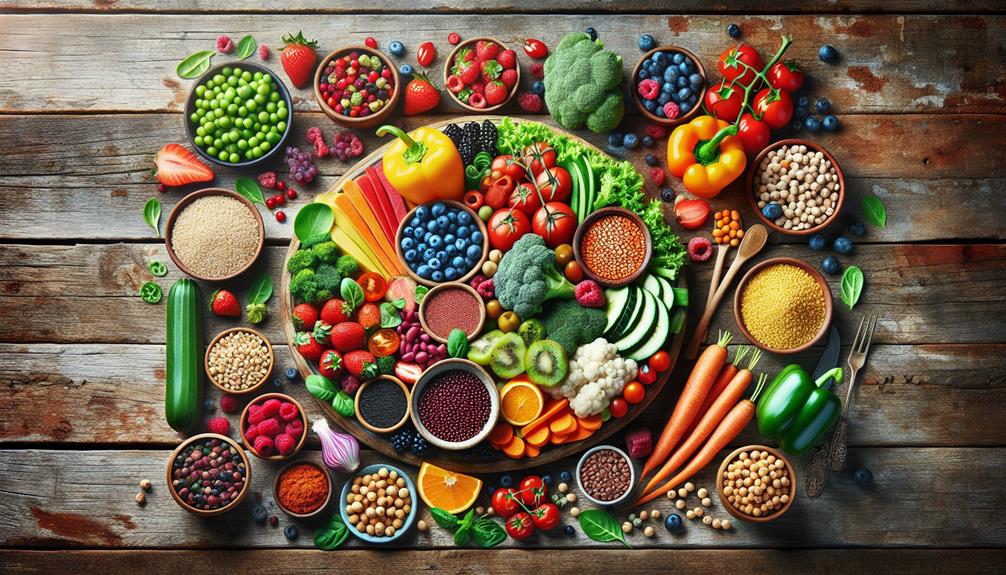
A variety of delicious and nutritious vegan meal plans can help you meet your dietary needs while enjoying flavorful plant-based foods. Whether you're new to veganism or looking for some inspiration, these sample meal plans can make your transition to a plant-powered lifestyle easier and more enjoyable.
Here are three options for vegan meal plans:
- DIY Vegan Meal Prep: Plan and prepare your meals in advance to ensure you have healthy and satisfying options throughout the week. Spend a few hours on the weekend chopping vegetables, cooking grains, and prepping proteins like tofu or tempeh. Divide them into meal-sized portions and store them in containers for easy grab-and-go meals.
- Vegan Meal Delivery Services: If you're short on time or prefer convenience, consider subscribing to a vegan meal delivery service. These services provide pre-made vegan meals that are delivered to your doorstep. Many of them offer a variety of options, including gluten-free and organic choices, to cater to different dietary preferences and restrictions.
- Plant-Based Recipe Books and Websites: Explore vegan recipe books and websites for a wide range of meal ideas. From hearty stews to colorful salads and decadent desserts, you'll find countless recipes to suit your taste buds. Experiment with different cuisines and ingredients to keep your meals exciting and satisfying.
With these vegan meal plan options, you can nourish your body while discovering the delicious world of plant-based eating.
Tips for Transitioning to a Vegan Lifestyle
Transitioning to a vegan lifestyle can be made easier with these practical tips. One of the challenges you may face when transitioning is finding suitable vegan alternatives for your favorite non-vegan foods. Fortunately, there are now numerous plant-based options available in grocery stores, such as dairy-free milk, meat substitutes, and vegan cheese. Take some time to explore these options and experiment with different brands to find the ones you enjoy the most.
Another challenge you might encounter is learning how to read food labels to ensure they are vegan-friendly. Look out for ingredients like milk, eggs, and honey, which can hide in processed foods. Familiarize yourself with common non-vegan additives and be diligent in reading labels to avoid accidentally consuming animal products.
When it comes to grocery shopping, make a list of vegan staples such as fruits, vegetables, whole grains, legumes, and nuts. Plan your meals ahead of time to avoid impulse purchases and ensure you have everything you need to create balanced and nutritious meals. Shopping at farmer's markets or joining a local CSA (Community Supported Agriculture) can also help you access fresh, seasonal produce at affordable prices.
Vegan Recipes for Beginners
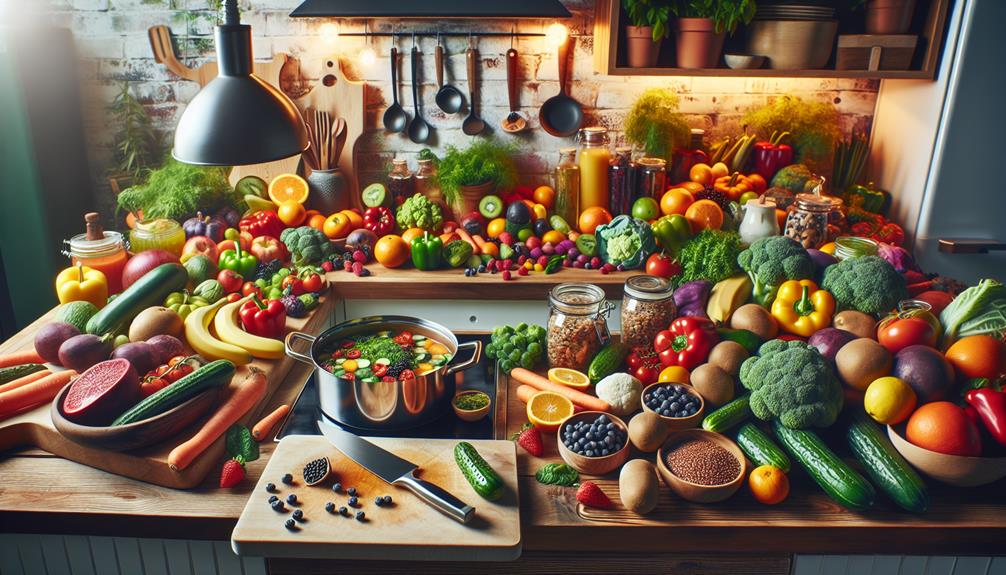
When exploring the world of veganism, discovering delicious plant-based recipes is an exciting way to embark on your new dietary journey. The good news is that there are plenty of easy vegan meals that are not only nutritious but also packed with flavors. Here are three ideas to get you started:
- Buddha Bowl: This versatile meal is a perfect option for vegan meal prep. Simply layer a bowl with cooked grains like quinoa or brown rice, then add a variety of colorful vegetables such as roasted sweet potatoes, sautéed kale, and avocado. Top it off with a protein source like chickpeas or tofu and drizzle with your favorite dressing.
- Lentil Curry: This hearty and flavorful dish is both satisfying and easy to make. Saute onions, garlic, and spices like cumin and turmeric in a pot. Add cooked lentils, diced tomatoes, and vegetable broth. Simmer until the flavors meld together. Serve over a bed of rice or with some warm naan bread.
- Veggie Stir-Fry: Stir-fries are quick, customizable, and a great way to use up any leftover vegetables. Heat some oil in a pan, then add your favorite veggies like bell peppers, broccoli, and carrots. Stir-fry until crisp-tender and add a savory sauce made from soy sauce, garlic, and ginger. Serve over rice or noodles.
With these easy vegan meal ideas, you'll be able to enjoy delicious plant-based meals while nourishing your body with wholesome ingredients. Happy cooking!
Frequently Asked Questions
Are There Any Health Risks Associated With Following a Vegan Diet?
Following a vegan diet may have potential drawbacks if not properly planned, such as nutrient deficiencies. However, there are plenty of alternative protein sources available, like legumes, tofu, and tempeh, to ensure a balanced and healthy plant-powered lifestyle.
Can I Still Get Enough Protein on a Vegan Diet?
You can still get enough protein on a vegan diet. There are plenty of vegan protein sources, such as legumes, tofu, and quinoa. Plus, a plant-based diet has numerous health benefits.
Are There Any Potential Deficiencies I Should Be Aware of When Following a Vegan Diet?
Are there any potential deficiencies you should be aware of when following a vegan diet? Yes, there are. However, with proper planning and recommended supplements, you can easily meet your nutrient needs and thrive on a plant-powered lifestyle.
How Can I Ensure I Am Getting Enough Iron and Calcium on a Vegan Diet?
To ensure you get enough iron and calcium on a vegan diet, focus on plant-based sources like leafy greens, legumes, tofu, fortified plant milks, and nuts/seeds. It's important for vegan diet and bone health.
Can I Still Enjoy Eating Out at Restaurants While Following a Vegan Diet?
You can absolutely still enjoy eating out while following a vegan diet! Many restaurants now offer a variety of vegan dining options, and with a little research, you can easily find vegan-friendly restaurants in your area.
Conclusion
In conclusion, embracing a vegan lifestyle can lead to numerous benefits for both our health and the environment. By prioritizing plant-based foods and ensuring we consume essential nutrients, we can thrive on a vegan diet. Transitioning to this lifestyle may seem daunting, but with the right meal plans and tips, it can be a smooth and enjoyable process. Remember, just like a seed that grows into a flourishing plant, our bodies can also bloom with vitality when nourished by a plant-powered diet.


